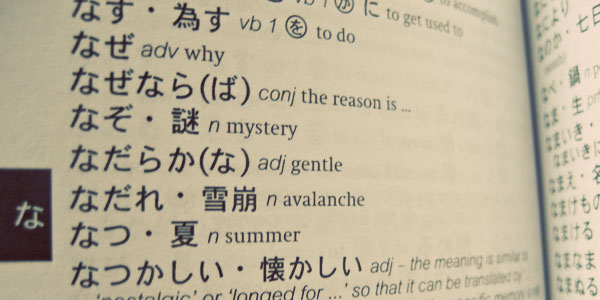
By Misa Shikuma
“He who does not know his mother’s tongue does not know where he is going.” – Dr. Jose Rizal
My first introduction to this quote was in preparation for a fourth grade play. At the time I just thought it was funny because I was unaware that “tongue” is a synonym for “language,” but it’s only now that I’m beginning to fathom its true meaning.
I’m half Japanese and half Chinese, but often mistaken for Korean. As fourth generation on both sides of my family, I’m more “American” than many of my friends but, regrettably, don’t speak either language. Instead I’m semi-fluent in French and Spanish. This gap in my cultural knowledge never used to bother me because I assured myself that I would learn them someday. I still haven’t, and now it makes me feel isolated.
I avoid making eye contact with Asian tourists because I know that look: the glint of recognition when they think they’ve found a kindred spirit. And we are kin, in a general sense, but in that moment I’m painfully aware that I can’t give them what they want. This exact situation has played out countless times and it’s always the same. If I’m too slow to look away they approach, only to utter sounds that carry no meaning for me. Sometimes the confusion on my face is obvious enough and they walk away, disappointed. Other times they stand there expectantly until I say, “Sorry, I don’t speak…” I try to look apologetic, and so do they, as they smile half-heartedly and sometimes shrug. I wonder what they’re thinking as they retreat.
I eat sushi as often as possible, annually receive money in red envelopes from my Chinese relatives and grew up on Hayao Miyazaki movies. Once I even went through a phase during which all I listened to was J-pop. I absorb the parts of my heritage that are easily within reach; in other words the superficial things, like an atheist celebrating Christmas. But reaping all of the gratification with none of the comprehension leaves me feeling like a poser.
Recently I moved to Paris where my new school, a mecca for international students, is predominantly Asian and my peers openly express shock at my language deficiency. Despite being regarded by most as “Asian” at home, now that I’m abroad I’ve suddenly become “American.”
It would be naïve to assume that learning more languages would suddenly make me feel “complete,” and yet years of living in cultural ignorance have built it up in my mind as an antidote to my identity crisis. While at home Asian Americans have carved out a unique communal niche, now that I’m five thousand miles away my cultural and national identities seem worlds apart. I feel less “Asian” than ever standing next to my classmates from China or Singapore, but identifying as “American” is an entirely new experience. Other expats say that it takes living abroad to fully appreciate patriotism, so I suppose embracing my roots will have to wait. For now I’m just another Francophile hailing from the land of the free and the home of the brave.
ABOUT THE AUTHOR: Misa is a freelance writer and film fanatic born and raised in Seattle. After graduating from college she left behind her second home, the Bay Area, to pursue her other passion: food. She currently resides in Paris where she’s training to become a pastry chef.
- Excited
- Fascinated
- Amused
- Disgusted
- Sad
- Angry








